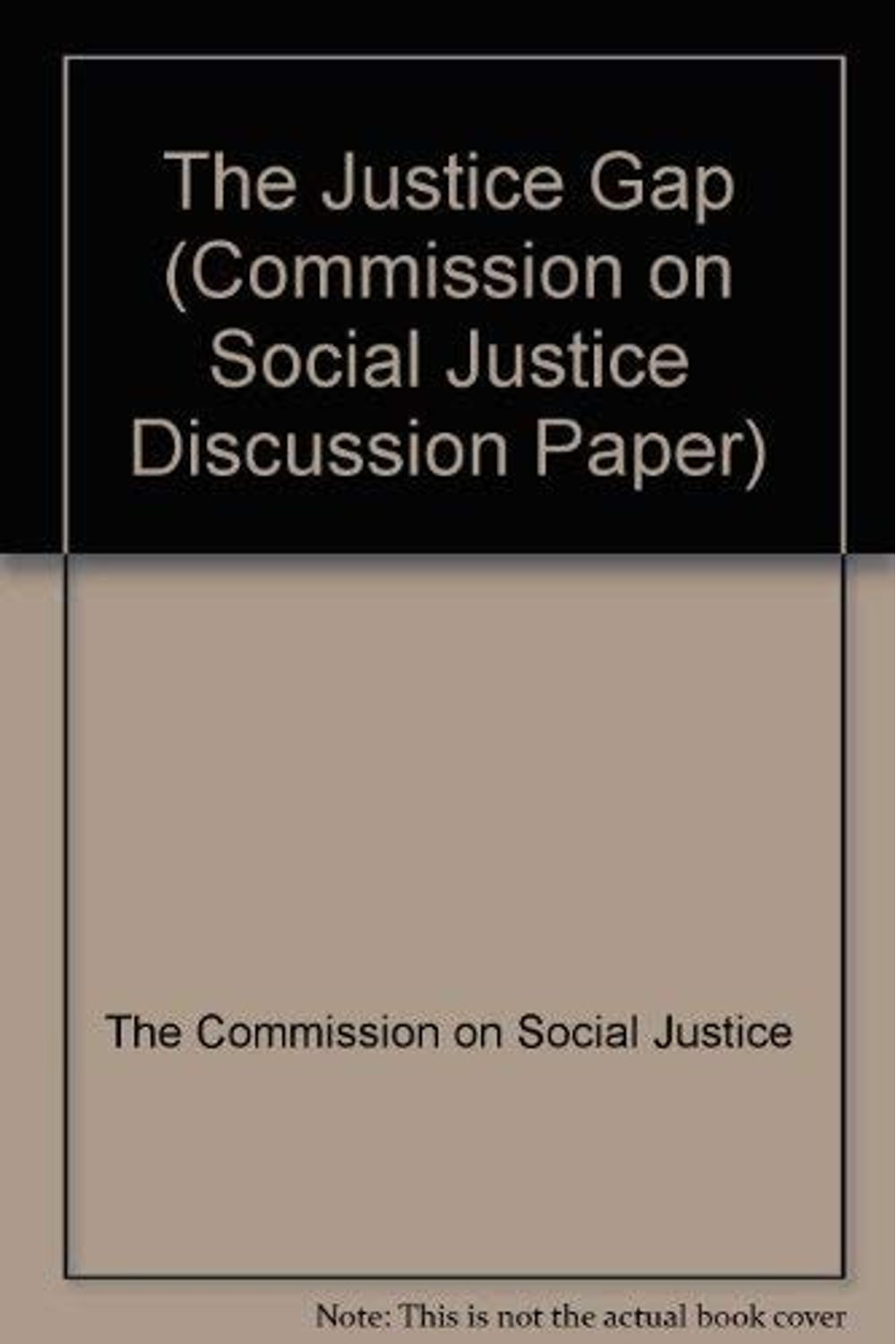“The Justice Gap,” a crucial 1993 report from the Commission on Social Justice (convened by the Institute for Public Policy Research), offers a snapshot of inequality in Britain. This concise, yet impactful, 59-page paperback (ISBN: 9781872452678) exposes the widening divide between the promise of a fair society and the harsh realities faced by many. Examining poverty, unemployment, and unequal access to essential services, the report, published by IPPR, served as a wake-up call, fueling debates about social reform. Though written decades ago, its insights into systemic injustices remain startlingly relevant, prompting reflection on how far we’ve come and how far we still have to go. A must-read for students and anyone interested in understanding the roots of modern social challenges.
The Justice Gap (Commission on Social Justice)
13,12 $
In stock
Delve into the groundbreaking social analysis of 1990s Britain with “The Justice Gap,” a pivotal report from The Commission on Social Justice. Published in 1993 by the Institute for Public Policy Research (IPPR), this influential paperback offers a concise yet comprehensive examination of the widening inequalities and injustices that plagued British society at the time. At just 59 pages, “The Justice Gap” delivers a powerful and focused critique of existing social structures and policies. While concise, don’t be fooled; it’s packed with insights! Commissioned during a period of significant social and economic change, the report meticulously identifies the “justice gap” the disparity between the ideals of a fair and equitable society and the lived realities of many citizens. It explores a multitude of critical themes, including poverty, unemployment, access to education, healthcare disparities, and the challenges faced by marginalized communities. It was a key contribution to the public discourse of the time. The Commission on Social Justice, convened by the IPPR, brought together leading academics, policy experts, and community representatives. Their collective expertise and diverse perspectives shaped the report’s rigorous analysis and informed its far-reaching recommendations. The report called for significant social reform. While being over two decades old now, the questions it raises and the themes that it explores still resonate with many readers today. The IPPR, a respected and independent think tank, has a long history of contributing to public policy debates in the UK. Their involvement adds further weight to the report’s credibility and significance. “The Justice Gap” served as a catalyst for further research, policy development, and advocacy efforts aimed at creating a more just and inclusive society. This English language edition of “The Justice Gap” (ISBN-13: 9781872452678; ISBN-10: 1872452671) offers a valuable historical perspective on the social challenges of the early 1990s and remains relevant for students, researchers, and anyone interested in social justice issues. Secure your copy today and discover the insights that shaped a generation of social policy thinking! This is more than just a book; it’s a piece of social history.
| Authors | |
|---|---|
| Binding | |
| Condition | |
| ISBN-10 | 1872452671 |
| ISBN-13 | 9781872452678 |
| Language | |
| Pages | 59 |
| Publisher | |
| Year published | |
| Weight | 4000 |
Related products
- Additional information
- Currencies
- USD – United States dollar
- EUR – Euro
- GBP – Pound sterling
- CNY – Chinese yuan
- BRL – Brazilian real
- MXN – Mexican peso
- JPY – Japanese yen
- PHP – Philippine peso
- THB – Thai baht
- PLN – Polish złoty
- CAD – Canadian dollar
- MYR – Malaysian ringgit
- AUD – Australian dollar
- TWD – New Taiwan dollar
- CZK – Czech koruna
- SEK – Swedish krona
- HUF – Hungarian forint
- ILS – Israeli new shekel
- CHF – Swiss franc
- HKD – Hong Kong dollar
- DKK – Danish krone
- SGD – Singapore dollar
- NOK – Norwegian krone
- NZD – New Zealand dollar





